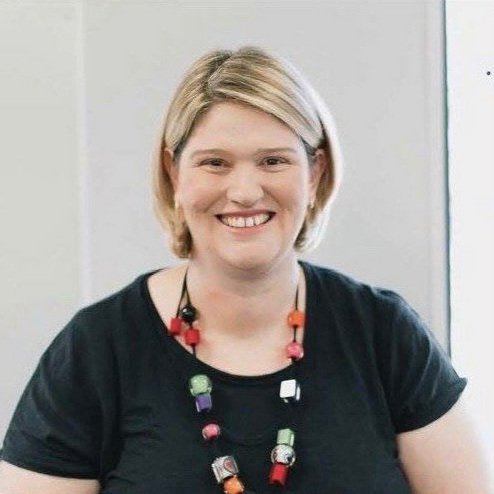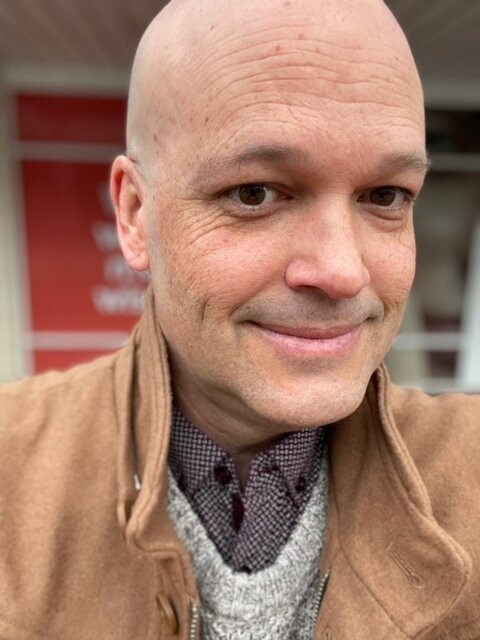
Mentor Program Info Session Feb 2022
Interested in mentoring from one of our volunteer educators? Wanting to give back, and mentor a teacher/educator early in their Science of Learning Journey? Catch the recording for this interactive session about our Mentor Program, and place your application ASAP for our 2022 program.

TFE Principals’ Forum - Nov 2021
In Nov 2021, we convened our fifth Think Forward Principals’ Forum, bringing together Principals and APs/DPs to discuss high quality instruction and the Science of Learning. Showcasing the work of Steven Capp and Sarah Asome from Bentleigh West Primary School.

Setting up for Success - Gippsland Branch
At this meeting we heard from two teachers who have been successfully implementing the science of reading and science of learning in their classrooms. They shared their experiences and provide tips for setting up the new year for success. Sarah Johnstone from Guthridge Primary School (Sale) is currently a Literacy Specialist and has previously held leadership and principal positions. Rachael Geerts from St Pauls Anglican Grammar School (Traralgon) has recently been appointed Director of Learning and Teaching and previously was the Learning Specialist at Loch Primary School.

Oral Language in the Classroom across K-12: Kathryn Thorburn - NSW Branch
What role does oral language play in supporting student literacy & learning across the curriculum? Does it matter beyond the first year of school? What impact does oral language skills have on learning to read and reading comprehension?
Kathryn Thorburn is a dual qualified Speech Pathologist and Teacher with a Masters in Special Education. She has 25 years experienced as a Speech Pathologist and runs a small private practice, Language and Learning. Kathryn will provide an in-depth look at oral language in the Classroom across the school years. She understands first hand the demands placed on classroom teachers and strives to make the complex practical to support schools to support learners in the most effective, time and resource efficient manner possible.

Getting Started with a Knowledge-Rich Curriculum - Brad Nguyen
How does a brand new school start developing a knowledge-rich curriculum?
Join Brad Nguyen as he shares lessons learned from Docklands Primary School’s first year in operation.

Challenge Accepted: Practical Actions for Reading Success - Jocelyn Seamer - TAS Branch
In this session, Jocelyn shared her experiences from her work in some of Australia's remotest schools and outline the necessary components for evidence informed literacy practices in the early primary years. Focusing on practical and realistic actions, Jocelyn will invite you to consider the steps we might take to move closer to the evidence and create success and growth for every child, everywhere.

The Great Teaching Toolkit - Prof Rob Coe
Helping teachers to become even more effective is mainly about teacher learning. Crucially, teacher learning is just like every other kind of learning, so clarifying the curriculum - what is worth learning to get better at - is fundamental.
The Great Teaching Toolkit: Evidence Review, published in June 2020, presents the latest and best available evidence about what great teachers do that makes a difference. Teacher learning also depends on feedback - rich, insightful, actionable feedback that helps teachers to focus on the things that matter, to see how well they are doing, what they are improving and what they can most usefully work on. In this talk, Rob will describe what the great Teaching Toolkit is, how it could support your teaching, and how you can get involved.

Quality Differentiated Teaching Starts at Wave 1 - Stuart Kitto - SA Branch
Stuart Kitto is a former principal who has been working in central office roles around disability policy and practice for the last 2 years. In this talk, he discussed the evidence around inclusion, and how schools might use waves of intervention to minimise the risk of learners slipping through the gaps. He makes some practical suggestions for schools looking to be more systematic and strategic in their approaches to planning, monitoring and stretching the learning of all.

Designing a Low Variance Spelling & Reading Curriculum - Jenny Baker
A Low Variance Scope & Sequence is a document that outlines the “what” and the “when” of literacy teaching – particularly in relation to systematic synthetic phonics; it “prescribes” a “map” of the “route” for Tier 1 and Tier 2 teaching. In this webinar, Jenny will discuss how to select words to create the best possible entry into any sound system based on the properties that best discriminate between the chosen spellings.

The Writing Network Connect #2
A key goal of the Think Forward Writing Network is to open a conversation about writing in the classroom, using research, trialled techniques, assessment and data collection. Catch up on our second Network Connect Session! And join us next month! All welcome. Let’s share expertise, discuss best practice, learn from each other!

Moving towards the Science of Learning - Jack Neil
A school improvement journey. In this practical and reflective talk, Jack Neil will explore an example of how to initiate school change towards the Science of Learning, and how to lead in a new space. Jack will emphasise that key to leading change is embracing teachers as your greatest asset.

TFE Principals’ Forum - 19th Aug 2021
In Aug 2020, we convened our fourth Think Forward Principals’ Forum, bringing together Principals and APs/DPs to discuss high quality instruction and the Science of Learning.

Using cognitive models as a roadmap for assessment and teaching reading - Prof Anne Castles
Reading is a complex skill involving multiple processes, even at the single word level. In this talk, Distinguished Professor Anne Castles gave an overview of what is known about how words are read and learned in the context of an explicit cognitive model. She then illustrated how such cognitive models can provide a “roadmap” for teachers, guiding assessment and informing how best to teach word reading for maximum effects.

TAS Branch - How revolutionary is The Writing Revolution? - Dr Damon Thomas
See how we launched the TAS Branch of TFE, and hear from special guest, Dr Damon Thomas from the University of Tasmania on: How revolutionary is The Writing Revolution?

An Evening with Jordan Baker
Join our conversation with acclaimed journalist Jordan Baker to talk all things education - from the recent Maths Curriculum controversies, to the Reading Wars redux.

The Writing Network Connect #1
A key goal of the Think Forward Writing Network is to open a conversation about writing in the classroom, using research, trialled techniques, assessment and data collection. Catch up on our first Network Connect Session! And join us next month! All welcome. Let’s share expertise, discuss best practice, learn from each other!

Mentor Program Info Session Jul 2021
Interested in mentoring from one of our volunteer educators? Wanting to give back, and mentor a teacher/educator early in their Science of Learning Journey? Catch the recording for this interactive session about our Mentor Program, and place your application.

Dual-qualified teachers and speech pathologists - Snow, Serry, and McLean
Hear about the latest research into the experiences and opinions of dual-qualified speech pathologists and teachers regarding their pre-service education in each discipline, and how this impacts their practice.

QLD Branch - Inaugural Meeting
Join us for a virtual ‘Meet & Greet” for members of the newly formed Think Forward Educators Queensland Branch. This will be an opportunity to make connections with others across Queensland who are also passionate about learning.

NSW Branch - Carina McSweeney - The Science of Reading in NSW Schools
Wherever you are in the SoR journey, there’s a sense of excitement that NSW is leading the way! NSW TFE branch invites you to take part in the conversations or learn more to meet the challenges ahead.
